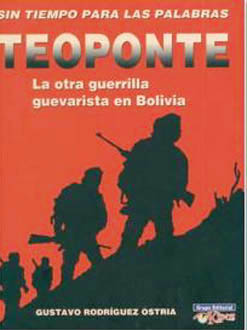Maya, The
First
by Gustavo Rodríguez Ostria*
November 5, 2012
A CubaNews translation.
Edited by Walter Lippmann.
The municipal elections in Chile came with a surprise due to the high
level of abstention and the progress made by the opposition and the
left. One of those elected in a place where the polls indicated the
opposite was Maya Fernández Allende, granddaughter of President Salvador
Allende; she was barely two years old when her grandfather was
overthrown by General Pinochet. She and her mother Beatriz found asylum
in Cuba, where Maya lived until she was 21.
Maya, a biologist and veterinary doctor, won in Ñuñoa, the community in
barrio alto that has the best Human Development index in Santiago, and
without a doubt in Chile. She defeated the candidate of the right who
was seeking re-election, and will be the first Socialist female mayor in
the municipality where she had been a Councilmember since 2008.
I met her more than a year ago. At the time I was researching the life
story of her mother Beatriz, aka Tati, a member of the Socialist Party
who between 1968 and 1979 was a militant of the Ejercito de
Liberación Nacional (ELN) [National Liberation Army], precisely in
the times of the Teoponte guerrilla. Tati was in charge of radio
communications with Havana as well as the logistics which made possible
the entrance of supplies, arms, and combatants in Bolivia through
clandestine crossings of the borders. They used Hito 100 and
other clandestine paths to covertly cross in their vehicles. Seven
Chileans took part in these guerrilla operations; four of them died.
I asked Maya if she knew the origin of her name. She said she didn’t. I
told her that in Aymara, maya means first; but that most
certainly her mother took the name as homage to Rita Valdivia, aka Maya
within the ELN. I added that probably Tati and Rita had received
military training together in Punto Cero in Cuba and had also
been involved together in some operative actions in Chile
Rita had been born in 1946 in a town of Valle Alto. As a very young
woman she moved to Venezuela and later to Democratic Germany to study at
Karl Marx University in Leipzig. She was a militant in the Communist
Party of Venezuela when she contacted a group of young leftist Bolivian
students who decided to follow the footprints of Ché in Bolivia. She
then went to Cuba and in October 1968 she was in Cochabamba as the
coordinator of the ELN, covered with a front as a young folklorist. She
died in Cochabamba on the night of July 14th, 1969. With her house
surrounded by police she asked a comrade to kill her so she wouldn’t be
taken alive. Beatriz, who had lived the traumatic experience of the
fascist military coup of September 11, 1973 in La Moneda, committed
suicide in Havana in 1977.
On generations such as this of Maya Fernandez, because of their
tradition and family history, falls the responsibility –from their
position in local government-- of guiding Chilean politics back to
justice, participation and transparency. But also because of the same
circumstances they have the task and the challenge to contribute to the
building of a new and equitable relation of the Chilean society with
Bolivia, the land her mother fought for in order to plant a seed of
renovation and solidarity.
*) Gustavo Rodríguez, Bolivian historian, author of
Teoponte, la otra guerrilla guevarista en Bolivia [Teoponte: The
Other Guevarian Guerrilla in Bolivia].
--
MAPOCHO PRESS
Santiago - Chile
Reproduction allowed / Mention source
Reproducción permitida / Citar fuente
